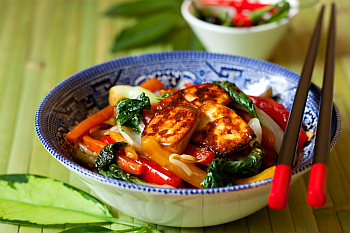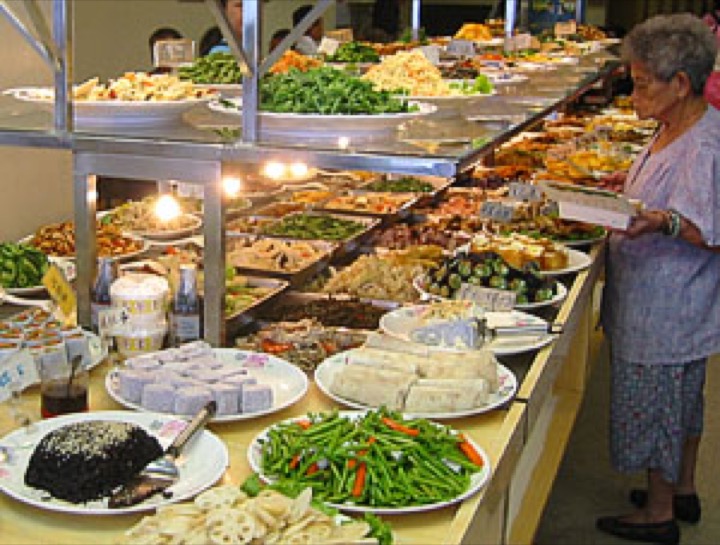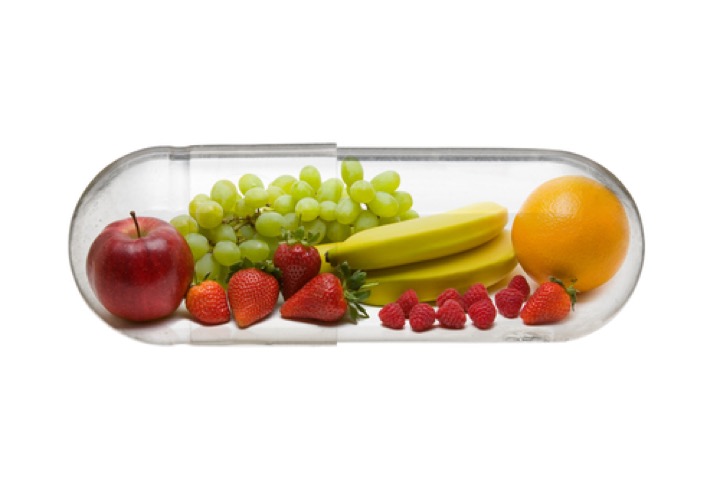Taking the vegan plunge can be an admirable decision for activist, health, or weight loss reasons. But since meat and dairy are literally off the table now, it’s very important to nourish your body and get the nutrients you need. Vegan diets consist entirely of plant foods. That means no meat, fish, poultry, eggs, or dairy. While many people adopt this way of eating out of animal rights and environmental concerns, others are choosing it for its health benefits such as reduced risk of heart disease and type 2 diabetes, lower cholesterol and, of course, weight loss.
That’s not to say veganism doesn’t have its drawbacks. It can be difficult to stick with and makes eating out a challenge. Because it excludes entire food groups, it can also come up short in the nutrition department – unless you plan it carefully. If you’re considering going vegan, make sure you don’t miss out on these six key nutrients:
• Protein: While both plant and animal foods supply protein, animal foods provide complete protein, which packs all the amino acids our bodies needed to build muscle and synthesize antibodies, enzymes, and hormones. Because plant protein often lacks several of these amino acids, getting enough of this nutrient can be tricky, but not impossible. There is one exception: Soy. Soy foods such as edamame, soymilk, and tofu deliver the complete protein that vegan diets lack. Rounding out your plate with other plant-based proteins like tempeh, quinoa, beans, lentils, nuts, seeds, and nut butters can also help you get your fill.
• Calcium: Because vegans don’t do dairy, their risk of bone fractures is nearly 30% greater than non-vegans. Certain, but not all, leafy greens can help. Broccoli, Chinese cabbage, bok choy, and collards are all rich in a form of calcium that’s easy to absorb. You can also get your calcium fix from tempeh, tahini, almonds, and almond butter as well as from fortified foods like orange juice, cereal, soy, rice, and almond milk. For maximum absorption, look for brands fortified with calcium carbonate.
• Omega-3 fats: Vegans have lower blood levels of DHA and EPA, long chain omega-3 fats (mainly found in fish) that help boost brain, eye, and heart health. Foods like ground flaxseed, chia seed, mung beans, walnuts, and canola oil provide ALA (alpha-linolenic acid), an omega-3 cousin of DHA and EPA. While it’s not quite as efficient as the long chain varieties, our bodies can convert about 10% of the ALA from food into EPA. Since that may not be enough, consider a DHA and EPA supplement made from cultured microalgae.
• Vitamin D: This vitamin is tricky to get even if you’re not a vegetarian. Because it’s mainly found in fatty fish and fortified cow’s milk, it’s even harder to get if you’re a vegan. While fortified foods like cereal, milk alternatives, and orange juice supply some vitamin D, they may not be enough to get the 600IUs you need each day. If you’re not outside in the sun for 10 to 15 minutes a day, consider a supplement.
• Iron: This mineral comes in two forms: Heme iron (from animal foods) and nonheme iron (from plant foods). Of the two, our bodies soak up heme iron far more efficiently than the nonheme variety. No wonder vegans need nearly two times as much iron as omnivores. That makes loading up on iron-rich foods like quinoa, bulgur, potatoes, beans, seeds, and nuts a must. Pairing these with foods with those high in vitamin C like strawberries, oranges, tomatoes, and peppers helps to convert their iron to a form that’s easier to absorb.
• Vitamin B12: If you’re a vegan, getting enough of this B vitamin can be a real challenge. Unlike any other vitamin, B12 is only found in animal foods. While some forms of nutritional yeast can provide small amounts, foods like miso, tempeh, seaweed, and spirulina do not. Since B12 is critical for keeping your DNA and red blood cells healthy, your best bets are fortified foods like cereal, soymilk, and meat substitutes or a vegan supplement.
Author: Karen Ansel, MD
X-posted from Cooking Light



